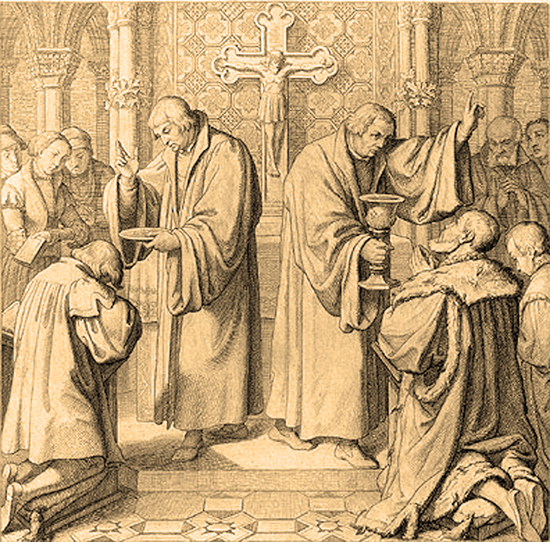
Luther, administers The Lord’s Supper serving both the bread and the wine.
The letter to the Hebrews proclaim that in the Divine Service God’s glory is revealed to the congregation through Jesus Christ (1:1-4), just as it was manifested to the congregation of Israel at the tabernacle in the daily services (Lev 9:6, 23, 24).
There and then, those who confess Jesus as Lord have access to the heavenly realm and the heavenly gifts by faith in God’s Word. His Word shows them what they cannot otherwise see. Yet faith does not merely hope for what will be given on the Last Day, but already now receives what it hopes for, what is otherwise unseen and will be visible manifested only in the final theophany at the second coming of our Lord Jesus Christ (9:8).
Yet these heavenly gifts are already now given and disclosed verbally through God’s Word in the Divine Service as an unusual kind of theophany. There the earthly congregation straddles two worlds. As they participate in Christ, he involves them in his priestly ministry. He engages in a service which is both earthly and heavenly, a service in which he officiates as High Priest and is himself the radiance of God’s glory (1:3), a service in which God the Father, Jesus, his divine Son, and the Holy Spirit speak to the congregation. By speaking they disclose God’s glorious presence and gracious activity to the enlightened minds of his people.
As explained by John W. Kleinig, Concordia Commentary on Hebrews, p. 38-39.
